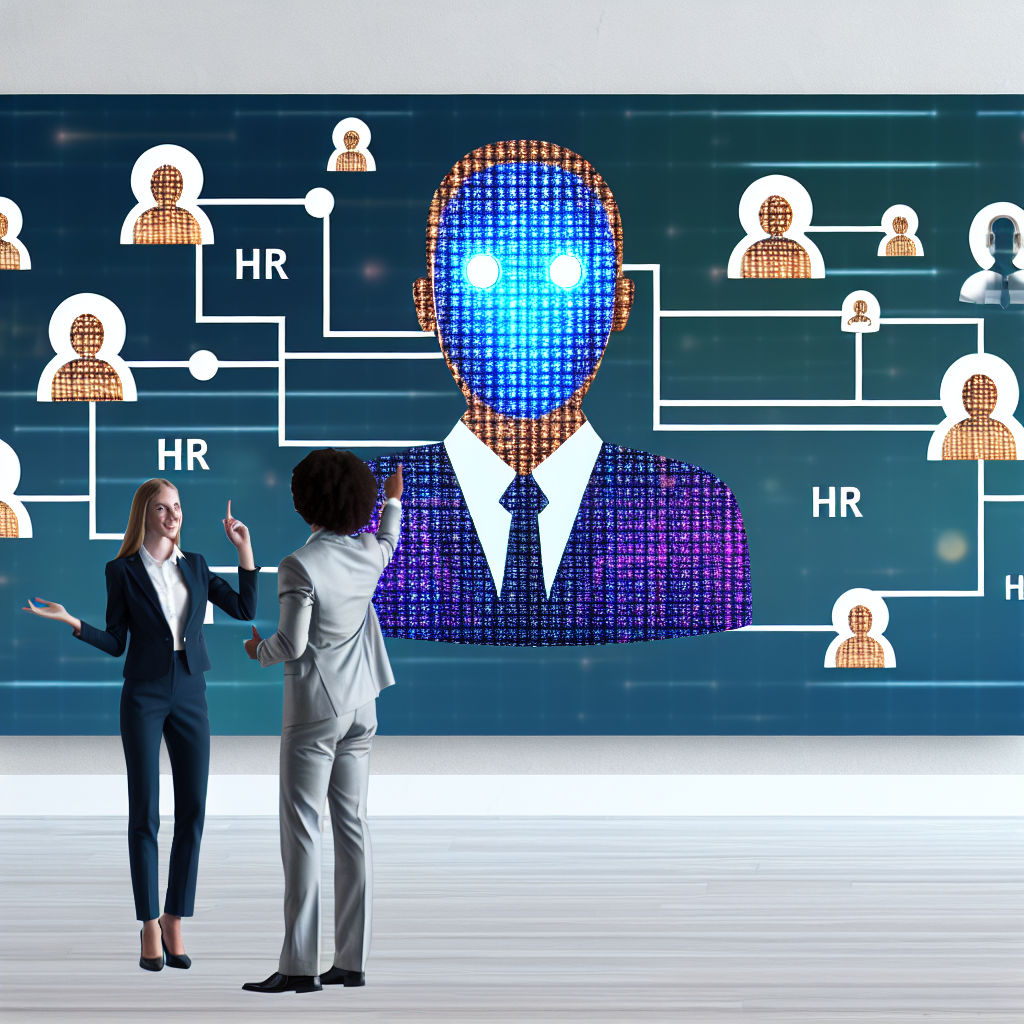
In the rapidly evolving landscape of human resources, the integration of artificial intelligence (AI) has become a focal point for professionals striving to enhance operational efficiency. One of the most discussed AI applications in this field is ChatGPT. The potential for this technology to streamline HR processes is significant, fuelled by ongoing advancements and a growing appetite for innovation. However, the pressing question arises: Will ChatGPT replace HR jobs? This article delves into the implications of AI’s growing role in human resources, evaluates its benefits and limitations, and provides a balanced perspective for HR practitioners as they navigate this new terrain.
Understanding the Impact of AI on HR
The impact of AI on HR functions cannot be overstated, especially as organisations increasingly recognise the value of integrating tools like ChatGPT into their workflows. AIHR projects that up to 40% of HR activities could be automated by tools similar to ChatGPT by 2023, signifying a paradigm shift in how HR departments operate.
Current Trends in AI Adoption
As the industry progresses, several compelling use cases for ChatGPT in HR have emerged:
- Recruitment: ChatGPT can analyse job descriptions and match them with suitable candidates, allowing HR professionals to save time and effort in the recruitment process.
- Employee Onboarding: The tool can offer real-time assistance, addressing common queries related to company policies and benefits, consequently lightening the load on HR teams.
- Training: Instant access to training materials can be facilitated by ChatGPT, empowering employees to seek information about workshops and development programmes swiftly.
- Compliance: The AI can provide employees with current information on compliance issues, such as labour laws and health and safety regulations.
Benefits of Implementing ChatGPT in HR
Incorporating ChatGPT into HR processes brings several advantages:
- Efficiency Gains: By automating repetitive tasks such as resume screening and interview scheduling, HR professionals are freed up to focus on strategic activities that require human insight.
- Optimised Candidate Experience: Real-time engagement with candidates enhances the recruitment process, making it more interactive and personalised.
- Improved Employee Experience: A streamlined onboarding process allows new hires quick access to essential resources, fostering a positive start to their employment journey.
Limitations and Ethical Considerations
Despite its many advantages, it is crucial to recognise the limitations of ChatGPT in HR settings. While the technology offers substantial support, it cannot replicate the nuanced judgment and decision-making that human professionals provide. A recent study by Mineral highlighted that ChatGPT’s responses might often be inaccurate or incomplete, particularly regarding complex HR questions. This exposure underlines the need for human oversight to ensure that the use of AI does not compromise the quality of HR practice.
Ethical Implications
When deploying ChatGPT, HR professionals must navigate ethical considerations. The potential for data privacy breaches, as well as the risk of providing misleading information, necessitates careful management. Proper protocols and guidelines must be established to safeguard employee information and maintain trust within the organisation.
Balancing AI Efficiency with Human Insight
The frequent refrain that “AI will replace HR jobs” tends to evoke a sense of apprehension. However, the consensus among experts is that while AI tools like ChatGPT will augment HR capabilities, they are unlikely to render HR professionals obsolete. Instead, a shift towards a collaborative model where humans work alongside AI is more probable.
As leaders in HR, it is essential to remain informed about advancements in AI technology while recognising the importance of the human touch in HR practices. The future will likely involve a blended approach that optimises efficiency through automation while maintaining the critical human insights that drive effective decision-making.
Future Directions for HR Professionals
Looking towards the future, HR professionals can take concrete steps to harness the potential of AI while reinforcing their pivotal roles:
- Invest in Training: Understanding how to effectively leverage AI tools will be essential. HR teams should prioritise training to ensure they feel confident in utilising ChatGPT and similar technologies.
- Develop Guidelines: Establishing comprehensive guidelines for the ethical use of AI in HR processes will help prevent misuse and ensure data privacy.
- Enhance Human Skills: Focus on developing skills that complement AI capabilities, such as emotional intelligence, strategic thinking, and relationship management.
- Measure Impact: Regularly assess the effectiveness of AI integrations in HR processes and make adjustments as needed to drive optimal results.
Conclusion: Embracing AI in HR While Upholding Human Values
As we traverse this transformative journey in HR, ChatGPT stands out as a powerful ally that promises efficiency and innovation. However, it is essential to approach this technology with a comprehensive understanding of its limitations. The challenges posed by inaccuracies and ethical implications highlight the need for skilled HR professionals to navigate the complexities of human management.
Rather than viewing AI as a contender for HR roles, it should be seen as an enabler—a tool that streamlines processes and enhances productivity while preserving the invaluable human elements that are so crucial in HR practice.
HR professionals must confidently embrace these advancements, balancing the strengths of AI with the indispensable human insight that drives effective organisational culture and employee engagement.
For further reading on the role of ChatGPT in HR and its implications, explore the following resources:
- AIHR – ChatGPT for HR Guide
- Hacking HR Lab – ChatGPT for HR
- HR Morning – Can ChatGPT replace HR pros?
- Xref – Uses of ChatGPT in HR and recruitment
- Forbes – The 7 Best Examples Of How ChatGPT Can Be Used In Human Resources (HR)
By staying informed and proactive, HR professionals can navigate this exciting period with confidence, ensuring that the integration of AI enhances rather than diminishes the human experience in the workplace.
Vadim Kouznetsov is a distinguished entrepreneur and the visionary founder and CEO of JobXDubai.com, the UAE’s rapidly expanding job board. Renowned for his expertise in bridging the gap between job seekers and employment opportunities, Vadim has become a leading authority in the recruitment and job market of Dubai.
